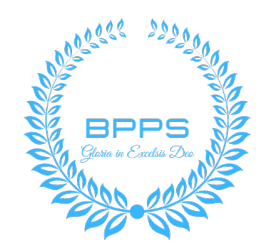Biodata/Résumé/CV though interchangeably used has differences. This article is not trying to highlight the differences but is to help you create a better impression about yourself to your prospective employer.
The first thing to do before you write a résumé is to try to remember and write down everything you know about yourself. Include all unimportant details as well.
The next thing to do is to group them into categories. Categories like Employment History, Education, Personal details, Co-curricular activities, Achievements, Awards and the like.
Now take a good look at the job you are going to apply for. What is the Company/Organisation looking for? That is the most important question. Again ask yourself, what are the skill sets the job demands? Then think, do I have the necessary skill sets to apply for the job?
If the answer is yes, then the next step is write your résumé which will impressively showcase your skill sets that the job demands. Here is where most people fail. They do not take time or effort to package what skills they have in a favourable light. If you do not think this is important, just ask yourselves, why do chocolates, soft drinks, soaps, cosmetics and a host of products come in attractive packages?
Or more importantly, why do they advertise in the best possible manner? It is because they want to capture the attention of customers and also put confidence in them that they can meet their needs.
Therefore organize your material quite effectively.
Many people simply cut-paste an Objective they find in some resume. Most of these objectives are very philosophical or optimistic (unrealistically of course). For example, one that I came across a few days ago: “To obtain a pocisition [position] which will allow me to utilize my capabilities effectively.”
There are two problems here. One, this is a very general statement and it adds nothing to the Interviewer’s/HR’s knowledge about what you will be able to contribute for the Company and its growth.
Secondly, (this is no exaggeration), the spelling mistake was really seen in the résumé that I came across. See, your résumé is the first impression about you. And this kind of spelling mistakes sends the red signal to your prospective employer. It tells him that you are not someone who is careful about details and takes things with a happy go-lucky attitude. Is that the image you want to project about yourself?
Make sure that you get a print out of your résumé, proof read it, make corrections in the original soft copy, save the changes and get another print out. Save it in a PDF format so that unexpected changes will not occur by mistake. Get the final printouts in good quality paper as well.
Now coming to inclusion of material in your résumé. Resist the temptation to include everything from your LKG to the present. Here, you have to select the best achievements that will match with the skill set the company is looking for. If the job is for a teacher’s post, it is not relevant to highlight the job you did as DTP operator or the sales job you did to earn some money.
Regarding, the order in which details are to be presented, it is always advisable to go for a reverse chronological order. That is listing recent achievements first and then going backwards.
Regarding length of résumé, it is good to keep it to one page, but do not exceed two pages. As for layout, make it with enough margins and space as far as your material allows you to. It is good to have your name printed at the top in big and bold and give your contact number and email somewhere near. If needed, give all personal information at the last.
Make sure that you keep at least two copies of the résumé you sent to the Company when you are called for the interview.
As a final and most important tip, do not make the mistake of waiting and doing nothing after you have sent a résumé somewhere. Hunt for other possibilities. Ask, seek, knock everywhere. Try to improve your skills. Or try to learn something new which might help in your future career. You can learn a foreign language like French or German or do an MBA or take short-term courses to improve your command of the English language. In short, make your waiting time for a job productive. That will give you a great leverage when you face the interview later. It will show the interview board that you are a person with passion. It will help you succeed.
Read my very fascinating true story of how I lost a crucial interview on LinkedIn.
Read a very good article by Judith Humphrey on How to write the bullet points on your résumé in order to stand out.


